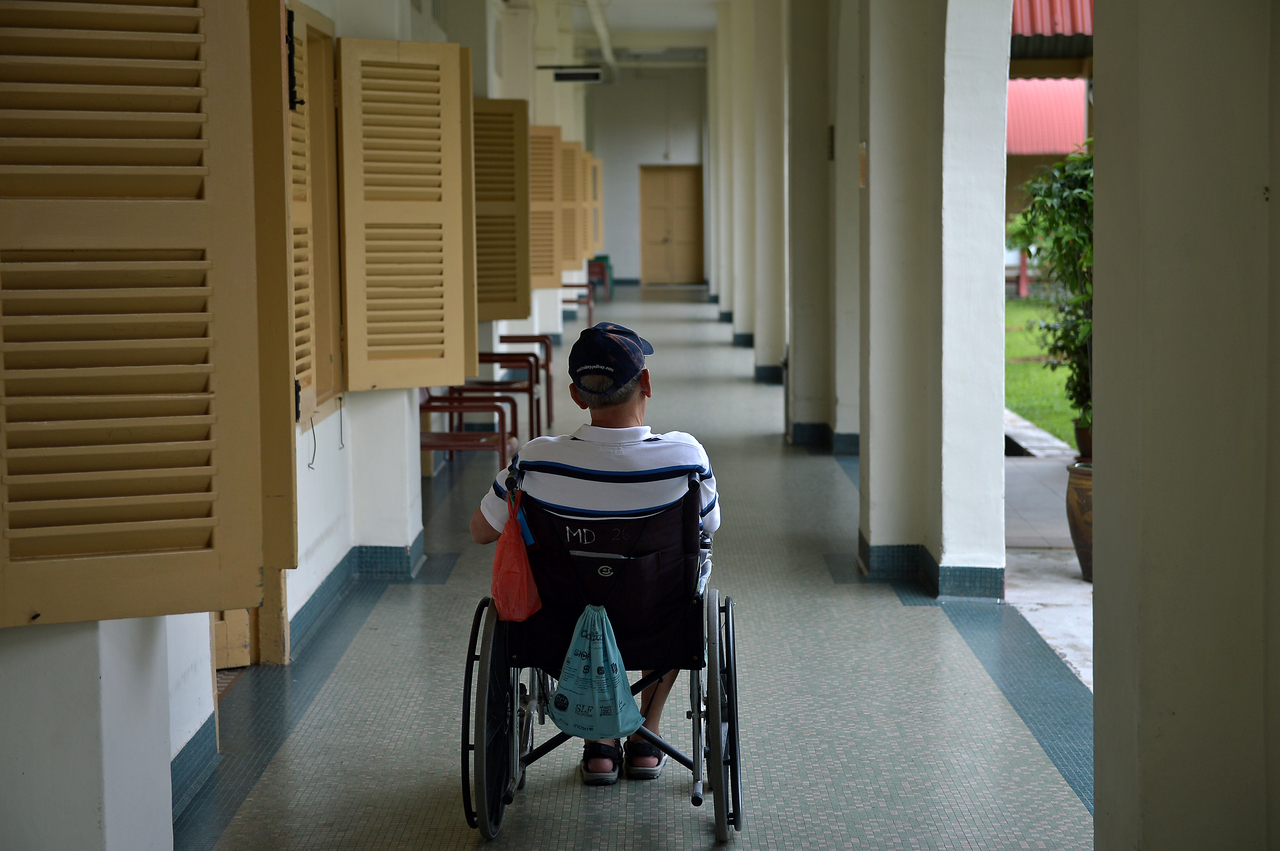Palliative care services to be boosted; topic of death needs open discussion: Ong Ye Kung
Sign up now: Get ST's newsletters delivered to your inbox

The Government will boost efforts to support caregivers, ramp up palliative care capacity, and increase capability among professionals, said Mr Ong Ye Kung.
PHOTO: ST FILE
Follow topic:
SINGAPORE - It is important for the sensitive issue of death to be discussed more openly and honestly, said Health Minister Ong Ye Kung, even as the Government improves palliative care services to meet the needs of a rapidly ageing population.
Palliative care is aimed at helping someone live with a serious, complex illness in the best way possible, improving the quality of life for the patient and his loved ones.
Speaking on Thursday (Dec 9) at the start of the virtual two-day Singapore Palliative Care Conference, Mr Ong said the Government will boost efforts to support caregivers, ramp up hospice and home palliative care capacity, and increase capability among professionals providing such care.
At the same time, it is crucial for frank conversations to be held about death.
He said: "It's probably the most important thing we need to do. It has to happen within families, between patients and doctors, and among members of society and the healthcare fraternity.
"It is one way to bridge the mismatch of expectations and desires between a dying patient and his or her loved ones."
In his speech, Mr Ong noted that family members often want to do whatever possible to ensure that patients receive the best possible care to recover, however slim the chances are, while the patients may prefer to spend their last days in the comfort of their own homes rather than undergo traumatic treatments.
"We need to reconcile these two desires. The answer lies in the advancement of palliative care and raising the awareness of its importance," he said.
The Ministry of Health (MOH) in 2012 developed a national strategy for palliative care, and will continue to evolve and improve it, said Mr Ong.
For example, the Home-Based Respite Care pilot started by MOH in 2019 has had positive feedback from close to 80 per cent of caregivers, who indicated a reduction in burden after using the service.
The pilot allows caregivers of patients on home palliative care to tap short-term custodial care services, such as showering and feeding, for their loved ones so they can have some rest.
The ministry is studying ways to extend the programme.
Mr Ong noted the increase in day hospice places to 160 today, up 60 per cent since 2017. There are 250 inpatient hospice places today, with more to come in the next few years.
The number of home palliative care places is expanding, with about 3,100 at any one time as at 2020.
Almost 11,000 healthcare workers have been trained to provide palliative care and more than 100 doctors have taken the graduate diploma in palliative medicine.
Mr Ong noted that more people are realising the value of advance care planning as a tool to document their healthcare preferences in the event they lose their mental capacity to decide for themselves.
In the past 10 years, more advance care plans have been lodged, with more than 27,000 so far.
"To encourage more of such honest and frank conversations with family and healthcare staff, there have been various efforts to normalise death and dying as a topic," said Mr Ong.
He cited local arts company Both Sides Now which used immersive arts experiences to engage a wide variety of audiences. In the last run of the programme which ended in 2019, it reached out to more than 12,000 individuals and trained over 300 volunteers in advance care planning advocacy.
The Singapore Hospice Council, which organised Thursday's conference which has 650 participants, has since 2017 been engaging the public through television commercials and social media with its "Live Well, Leave Well" campaign.
Mr Ong said: "Family members must feel comfortable that putting their loved ones through palliative care fulfils the desire of the dying and is in fact an act of love. It is a social attitude, which requires time to shift. When it does, it will be for the better."
In 1970, one in 31 Singaporeans was aged 65 or older. In 2015, it was one in eight and estimates indicate that by 2030, it will be one in four, with the proportion expected to continue growing.

